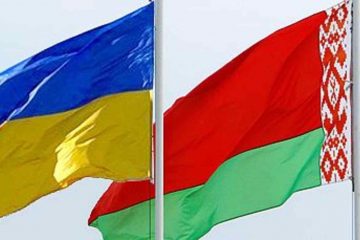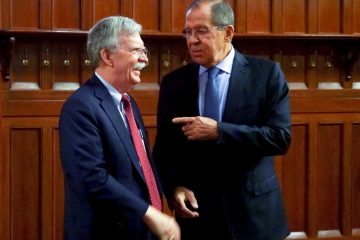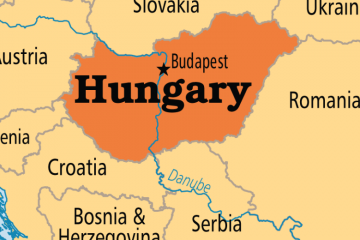Slavik’s voice was laced with panic. “No one is coming for us. We are surrounded by the enemy,” he had told me over a crackling telephone line. There were, he said, many losses, many soldiers lying on the floor around him – “some dead, some injured. Commanders need to send in reinforcements, or start negotiating a way out.” I would get the message out, wouldn’t I?
Over the course of that Saturday 17 January, I spoke to him on two further occasions. It was clear the 22-year-old Slavik had grown more and more terrified as he became trapped in Donetsk airport. “We’ve been looking around for people’s arms so we might stitch them on again,” he had said. By our third call of the evening, Slavik reported that a comrade missing his arm had bled to death. “If they don’t come for us by day break, we are done for. Done for.” That was the last contact I had with him, the last contact anyone had with him.
Slavik was a gifted boy. Growing up in western Ukraine, he never studied properly, but always seemed to do well. He was “an intellectual”, according to his father, with interests from the saxophone to theatre. He studied at the Kharkiv arts academy, but within a year had abandoned college. “He said he didn’t like the way they taught, and it was typical of him – always seeking out injustice to the point of stubbornness”.
Given his circumstances, joining the elite 80th paratrooper brigade in Lviv wasn’t the worst of outcomes, and his father recalls his pride at seeing his son in uniform. But Slavik’s tongue soon got him into trouble. He fell out with superiors after an argument over an armoured personel carrier he claimed wasn’t fit for service. He ripped up his military contract and went home.
That was in November 2013. By summer 2014, Slavik was receiving terrifying updates from the frontline, where former colleagues were defending Lugansk airport, and had found themselves fenced in by Russian-backed forces. He lost four of his closest friends in the battle, and felt he had to do something. By September, against the advice of his father, he went back to the Lviv training range. “I didn’t want him there – I told him it was a politicians’ war,” his father recalls.
Just before Christmas, Slavik travelled east, eventually ending up in Donetsk airport. Built during the height of the Cold War, Donetsk airport was the epitome of modern design. It covered a huge territory, and provided any number of hiding places within its serpentine grid of tunnels, bunkers and underground communications systems. There were entries into nearby mines, and into Donetsk itself, though much of the network had not been accessed for decades. For the Russian-backed rebels, the airport was an Achilles heel that prevented them from taking full control of the city. “The defence of Donetsk is impossible without the airport,” says Shiba, a deputy rebel battalion commander, using an alias. For the Ukrainian side, meanwhile, the airport had turned into a symbolic Stalingrad, with much war propaganda invested into the image of the indestructible, Terminator-style “cyborgs” who defended it.
With the old terminal falling into rebel hands during the December “ceasefire”, the main focus of the January battle was the new terminal. During the week before it fell, the Ukrainians inside were steadily beaten down to the second and third floors of the building; and then, by Saturday, to just a part of the second floor. “They were crawling all over the place like rats – above, below, and on either side,” says Sasha [not his real name], an injured paratrooper, speaking from his hospital bed. “You could hear them baiting us from behind the walls. They were saying things like ‘time to surrender, Ukies, we’re coming to cut your throats’.”
Throughout that Saturday, there were several attempts to remove injured Ukrainian soldiers from the new terminal, but all were unsuccessful. At about 4am on Sunday morning, however, Ukrainian forces staged a major counter-offensive along the south side of the airport, which allowed a convoy of light army vehicles to retrieve the most seriously wounded. The operation was considered a success, though many Ukrainian soldiers remained trapped in the new terminal. Slavik was one of them. During the battles, military spokesmen claimed government forces were in full control of the airport. Then, some time around midday on Monday, the airport reverberated to the sound of an explosion. According to rebel commander Shiba, the blast was caused by the Ukrainian side “for reasons known only to themselves”.
Evgeny, a soldier serving in the 93rd brigade, sees things differently. “The explosion came from the centre of the hall, perhaps 40m from where we were, and was caused by explosives thrown in through a hole from the third floor, which we simply didn’t control.” All the internal walls were blown away by the blast, he says. Although few died, most soldiers received concussion injuries. An even bigger explosion followed at 3.30pm the following day. All of the supporting walls in the floors above gave way, crushing soldiers among the falling concrete. “We were running out of munitions,” says Evgeny, “but the worst thing was this sense of phantoms flying around you. You had so many people writhing in agony, moaning, crying for help.” Some of the injured were still shooting from horizontal positions, according to Evgeny: “They realised it was a fight to the end.”
Evgeny himself escaped on foot on Tuesday evening, scampering to safer positions the other side of the landing strip. He was the only one of his original group to make it home. He estimates that of soldiers in the new terminal, at least one third died, and a further third were seriously injured. As of 7.30am on Wednesday, Slavik was still in the new terminal, trapped under the rubble. His father battled his own fears in order to keep his son’s spirits up during a series of short telephone calls. “At the start we had hope. Slavik told me how he’d spoken to a British journalist, and how some deputy defence minister had followed up and assured him that help was on his its way.”
By Wednesday, however, it was clear that Slavik was on his own. “I said to my wife I was going to get the little one,” Slavik’s father says. “I got everything together in quick time – passport, money, papers – and I set off in the car. But I was an absolute wreck and I lost my way four times in the first hour.” He abandoned plans to drive there, and boarded the next train going east.
Some time after 7.30am on Wednesday 21 January, Slavik was captured by rebel forces. The following day he was paraded as part of a column of Ukrainian POWs in front of angry locals in Donetsk. Slavik’s father has been working ever since to secure the release of his son, and has even made an personal appeal to rebel leader Alexander Zakharchenko for mercy. These efforts have been independent and largely obstructed by Ukraine’s security services. “They tell me I’m doing my country no favours, but I’m only doing what a father needs to do,” he says.
Sasha, the paratrooper in hospital, recognises Slavik from the tale, and agrees with the father’s position. “Every one of those soldiers who fought in the airport is a hero. Sure, Slavik might have been scared, but we were all scared. There was not one second when you weren’t completely petrified. What’s important is that Slavik didn’t leave his comrades behind.” Sasha shakes his head and pauses for a while. When he continues, he tells me the airport is an experience he’d wish on no one, but that it wouldn’t stop him going back: “Too much blood has been lost. Even now, I see the faces. Those faces . . .”
A young woman, a nurse, appears from behind the soldier’s hospital bed. “Your temperature is above 38C. The interview stops now,” she says.






Comments